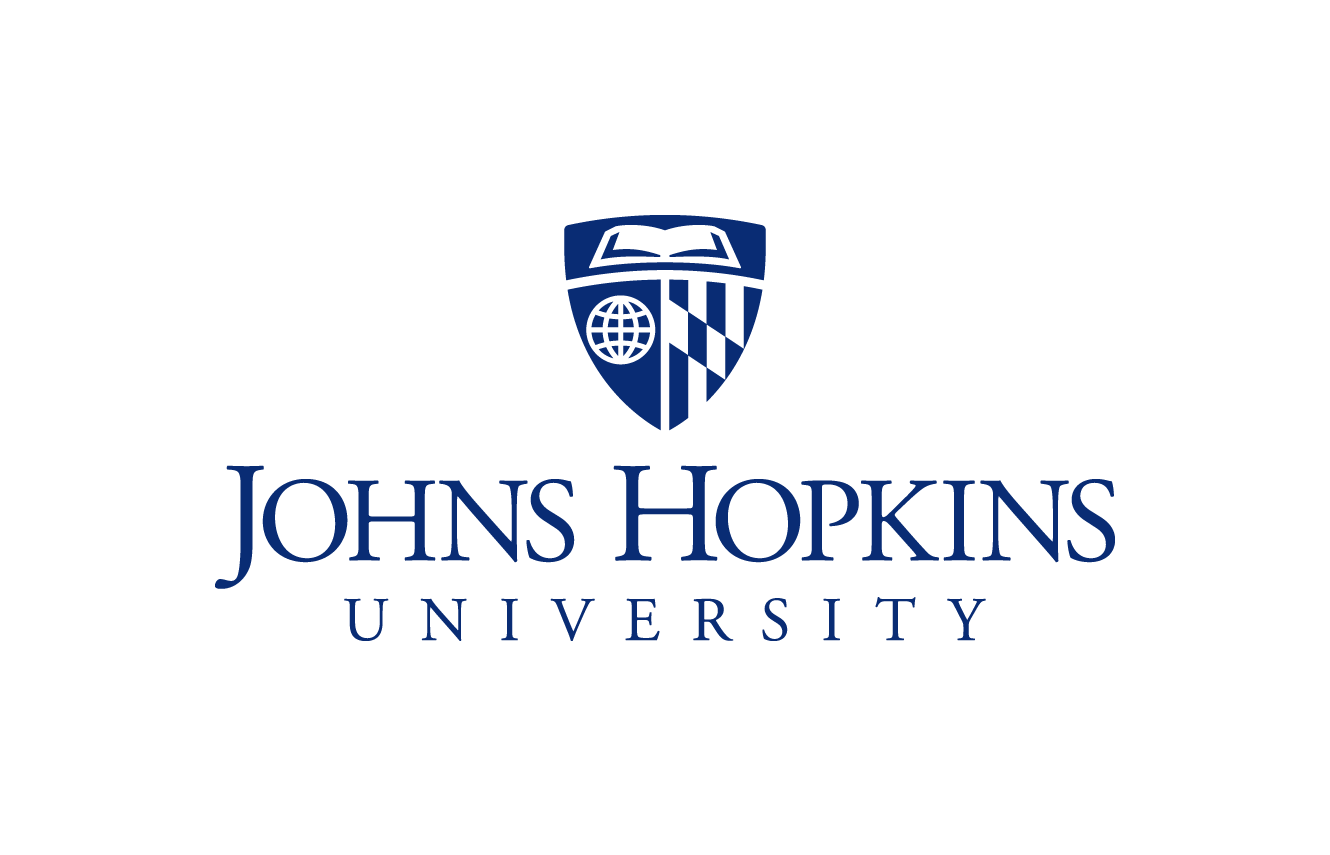GREAT TALK INC IS A 501(c)(3) NONPROFIT ORGANIZATION
Generously supported by our Gold Series Sponsors:

 AND
ANDTHE ALEXANDER GRASS HUMANITIES INSTITUTE, Johns Hopkins University
Present a Series of Special Events
What Happens When the Courts Are Ignored:
In accordance to what laws, to what courts, and with what consequences?
Wednesday, October 22, 2025 @ 7PM Eastern
Hosted by:
NCO Club at Pikesville Armory Foundation
640 Reisterstown Rd, Pikesville, MD
Free parking at the Pikesville Armory Foundation
FREE In-Person & Livestream via Zoom
REGISTER HERE FOR FREE!
Featuring a panel of experts:
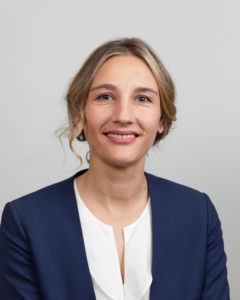
ANYA BIDWELL, Senior Attorney at the Institute for Justice.
Anya Bidwell (née Cherkasova) leads IJ’s Project on Immunity and Accountability (“PIA”). Through this project, Anya works to promote judicial engagement and ensure that government officials are held to account when they violate individuals’ constitutional rights. Anya also serves as an adviser on the American Law Institute’s Restatement of the Law, Constitutional Torts project.
Anya’s most recent focus has been on First Amendment retaliation. In the span one year, Anya got the U.S. Supreme Court to reverse two bad circuit-court precedents, making it easier for victims of retaliatory arrests to sue their tormentors and restore their good name. Anya personally argued the first case, Gonzalez v. Trevino, before the Court. In the second case, Murphy v. Schmitt, the Court granted the petition, vacated the Eighth Circuit’s denial of the retaliation claim, and remanded the case back to the Eighth Circuit, ordering it to reconsider the critic’s complaint in light of Gonzalez.
Anya appeared before the Supreme Court three additional times. She second-chaired Martin v. United States (a wrong-house raid case), Brownback v. King (an excessive force case), and Tennessee Wine & Spirits Retailers Association v. Thomas (a commerce clause case). The most recent of these—Martin—was heard by the Supreme Court in April 2025. The Court issued its opinion in June 2025, ruling for the family and sending the case back to the Eleventh Circuit.
Anya spent her childhood in Ukraine and Kyrgyzstan. At 16, she left her family behind and came to America on a university scholarship. Her upbringing motivated her to study law and become an advocate for a strong, independent judiciary.
Anya’s work has been featured in numerous publications, including the Washington Post, the Wall Street Journal, the New York Times, USA Today, and the Guardian. She is also the host of live recordings of our Short Circuit podcast and a co-producer of our documentary-style podcast Bound by Oath.
Anya Bidwell on Institute for Justice website
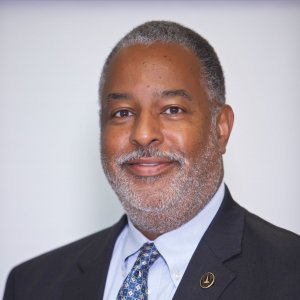
ANDRE M. DAVIS, Former United States Circuit Judge of the United States Court of Appeals for the Fourth Circuit.
The Honorable Andre M. Davis served for thirty years as a judge on four courts: the United States Court of Appeals for the Fourth Circuit, from 2009 through 2017; the United States District Court for the District of Maryland, from 1995 through 2009; the Circuit Court for Baltimore City, from 1990 through 1995; and the state District Court from 1987 through 1990. Upon graduating from law school, Davis served as law clerk to Judge Frank A. Kaufman of the federal district court and then to Judge Francis D. Murnaghan, Jr., of the Fourth Circuit.
Before his appointment as a judge, he served as an appellate attorney for the Civil Rights Division for the U.S. Department of Justice, as an Assistant United States Attorney in Baltimore, and as an Assistant Law Professor.
Davis received a BA in American history from the University of Pennsylvania in 1971, and graduated cum laude from the University of Maryland School of Law in 1978. He has received numerous commendations and awards for his leadership of community-based non-profits and attorney organizations. In September 2017, Davis retired from the bench and was appointed by the Mayor Pugh as Baltimore City Solicitor. In that role, he headed the City Law Department, comprised of more than one hundred lawyers and support personnel, and served as one of five members of the City’s Board of Estimates, the municipal spending authority.
Wikipedia page for Andre Davis
US District Court biography
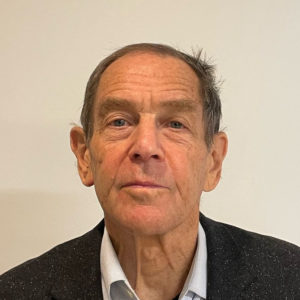
BRUCE FEIN, ESQ, Constitutional lawyer, political analyst, and commentator.
Bruce Fein has been a renowned legal-media fixture in Washington, D.C. for more than 50 years across the political spectrum. He featured on Attorney General William French Smith’s short-list
of potential nominees to the United States Supreme Court.
His unique network extends to all three branches of the government, the media, think tanks, universities, and a cluster of NGOs. Mr. Fein appears regularly on national and international television. His articles on law and public policy are ubiquitous. He conducts constitutional tutorials for Members of Congress and staff. He is Vice Chairman of the Committee for the Republic.
He is author of Constitutional Peril: The Life and Death Struggle for Our Constitution and Democracy and American Empire Before The Fall. Mr. Fein served as senior policy advisor to Ron Paul’s 2012 presidential campaign. He contributes daily commentary on his substack page:
brucefein.substack.com His twitter hashtag is @brucefeinesq.
He has testified as an expert witness before Congress on more than 200 occasions. He served on the American Bar Association’s Task Force on Presidential Signing Statements. He has lived through every major political-legal battle or crisis since 1969 beginning with the defeats of President Richard Nixon’s Supreme Court nominees Clement Haynsworth and G. Harold Carswell.
Mr. Fein graduated with honors from Harvard Law School and served at the highest levels of the
legislative, executive, and judicial branches of government before establishing his own law firm. Among other things, Mr. Fein served as special assistant to the assistant attorney general in the office of legal counsel at the U.S. Department of Justice, assistant director of the office of legal policy, associate deputy attorney general, general counsel of the Federal Communications Commission, research director for the Joint Congressional Committee on Covert Arms Sales to
Iran, and clerk to federal Judge Frank A. Kaufman.
Mr. Fein has been a newspaper columnist, professor at George Washington University, and Visiting Fellow at The Heritage Foundation and American Enterprise Institute. Mr. Fein specializes in constitutional, international law, civil liberties, and administrative law.
He has assisted multiple countries in writing or rewriting constitutions. He offers unique multi- dimensional analyses and solutions for every client. He is a member of the bar of the United States Supreme Court, multiple federal appeals courts, the United States District Court for the
District of Columbia, and the District of Columbia Bar.
Wikipedia page for Bruce Fein
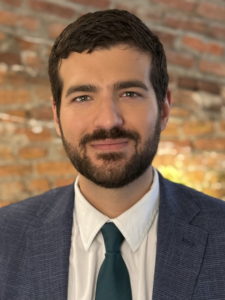
MODERATOR: MARK JOSEPH STERN, Senior Writer for Slate covering the Supreme Court.
Mark Joseph Stern is a senior writer covering courts and the law for Slate and co-host of the Amicus podcast. He regularly appears on MSNBC and NPR. Based in Washington, DC, he has covered the U.S. Supreme Court, federal appellate and district courts, and state and local courts since 2013.
He holds a JD from the Georgetown University Law Center and is a member of the Maryland Bar. Mark is the author of American Justice 2019: The Roberts Court Arrives.
Mark Stern on MSNBC 10/15/25 about Supreme Court
Wikipedia page for Mark Joseph Stern
Mark Joseph Stern Website
GREAT TALK is a 501(c)(3) nonprofit organization.
Please donate now to help offset the cost of this FREE event!
 Paypal | Stripe | Venmo
Paypal | Stripe | Venmo
 OUR PAST EVENTS:
OUR PAST EVENTS:Influence the Public and Our Leaders?
Irrationality, Power, and Privilege
Wednesday, April 23, 2025 @ 7PM Eastern
University of Maryland Francis King Carey School of Law
Room 108, 500 W Baltimore St, Baltimore, MD 21201
Free street parking or across the street in the Baltimore Grand Garage, 5 N Paca St for $10
FREE In-Person & Livestream via Zoom
REGISTER HERE FOR FREE
View the video replay from this Great Talk!
Featuring a panel of experts:

ELISABETH BUMILLER, writer-at-large for The New York Times.
Elisabeth Bumiller is a writer-at-large for The New York Times. She was most recently Washington bureau chief. Previously, she held the position of Washington editor and before that, deputy Washington bureau chief, overseeing White House and domestic policy reporting.
She covered the Pentagon, John McCain’s 2008 campaign and, from 2001 to 2006, she was a White House correspondent.
Before moving to Washington, Ms. Bumiller was the Times’s City Hall bureau chief, responsible for covering Mayor Rudolph W. Giuliani and his Senate race against Hillary Rodham Clinton from 1999 to 2001. Before that, Ms. Bumiller worked on the Times’s Metropolitan staff in New York as a general assignment reporter and as one of the writers of the Public Lives column. She has also written for The New York Times Magazine and the Culture and Travel pages.
From 1979 to 1985, Ms. Bumiller worked for The Washington Post in Washington, New Delhi, Tokyo and New York. Her first job in journalism was in the Naples bureau of The Miami Herald.
Ms. Bumiller is the author of three books: “Condoleezza Rice: An American Life”; “May You Be the Mother of a Hundred Sons: A Journey Among the Women of India”; and “The Secrets of Mariko: A Year in the Life of a Japanese Woman and Her Family.”
In 2006 and 2007, Ms. Bumiller was a public policy scholar at the Woodrow Wilson International Center and a Transatlantic fellow at the German Marshall Fund of the United States.
NYT pieces by Elizabeth Bumiller
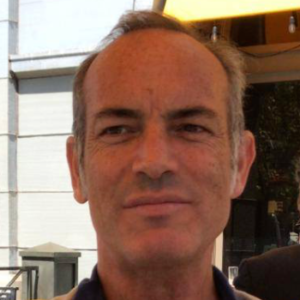
JAMES M. MATTINGLY, Philosophy Professor, Georgetown University.
Originally from the Silicon Valley in California, Mattingly studied Great Books at St. John’s in Annapolis and Physics at UC Santa Cruz. He then returned to a study of the History and Philosophy of Science at Indiana University where he received a Ph. D. in 2002. Shortly before that Mattingly was appointed Assistant Professor in the Georgetown University Philosophy Department.
His research is primarily in Philosophy of Science. Mattingly spends his efforts there about equally between general issues involving conceptual change in the sciences, the epistemology of science, the nature of scientific theories, and scientific explanation on the one hand, and issues more specific to philosophy of physics on the other including quantum gravity, general relativity, black holes and singularities, gauge theories, thermodynamics, electrodynamics. He also has research interests in early modern philosophy, the foundations of logic and mathematics, and the history of logical empiricism and other movements that attempted to come to grips with the profound conceptual reorientation made necessary by the revolutionary changes in science at the turn of the 20th century. More recently he has been trying to understand in what sense we can call any machines “agents” and what that entails going forward as AI appears to progress rapidly.
Mattingly is the author of Information and Experimental Knowledge, University of Chicago Press 2021, the editor of the Sage Encyclopedia of Theory in Science, Technology, Engineering, and Mathematics 2022, and co-author (with Beba Cibralic) of Machine Agency, MIT Press 2025.
Georgetown University profile page.

YITZHAK Y. MELAMED, Charlotte Bloomberg Professor of Philosophy, Johns Hopkins University.
Melamed is a professor in the Department of Philosophy at Johns Hopkins University. He holds an MA in philosophy and the history of science and logic from Tel Aviv University, and a PhD in philosophy from Yale University (2005). He has been awarded the Fulbright, Mellon, and American Academy for Jewish Research Fellowships. Recently, he has also won the ACLS Burkhardt (2011), NEH (2010), and Humboldt (2011) fellowships for his forthcoming book on Spinoza and German Idealism.
Melamed works at the intersection of philosophy (primarily metaphysics), Jewish and religious studies, the history of science, and the humanities in general. He focuses on foundational questions, which he aspires to approach with both philosophical and historical rigor. In particular, Melamed is interested in well-argued views that are commonly treated as “counter-intuitive”; such views, he thinks, may help us challenge our own well-fortified beliefs, force us to motivate what we deem to be obvious, and reveal our conceptual blind spots. To that end, he studies bold past philosophers (e.g., Spinoza), and less familiar theoretical analyses (e.g., Rabbinic thought), which may not only expand our philosophical imagination, but also help us develop a more inclusive attitude to philosophy and its history. He has written a brief manifesto outlining his philosophy for the history of philosophy (“Charitable Interpretations and the Political Domestication of Spinoza, or, Benedict in the Land of the Secular Imagination”).
Johns Hopkins University profile page.

IAN OLASOV, Adjunct Lecturer, New York University; and Public Philosopher.
Ian Olasov is an adjunct lecturer at NYU’s Center for Bioethics. He is the author of Ask a Philosopher: Answers to Your Most Important and Most Unexpected Questions (St. Martin’s: 2020) and a co-editor of A Companion to Public Philosophy (Wiley: 2022). He is also the President of the Public Philosophy Network, an organization that advocates and develops resources for philosophers working with communities outside of academia, from prisons to policymakers. For several years Ian Olasov set up ‘Ask-a-Philosopher’ booths around New York City, answering questions from passersby.
He holds a Ph.D. in philosophy from the Graduate Center of the City University of New York. His research interests are broad, but revolve around questions about speech in the public interest, from the philosophy of journalism, to public philosophy, to philosophy of moral and political language. He lives in Brooklyn with his excellent partner and their two dogs, Patty and Scrapple.
Ian Olasov’s website
“Public”: An Essay by Ian Olasov

MODERATOR: KATIE CURRAN O’MALLEY, Executive Director, Women’s Law Center of Maryland.
Katie Curran O’Malley was born and raised in Baltimore, Maryland, where she attended Towson
University and the University of Baltimore School of Law. Katie began her legal career over thirty years
ago as a prosecutor in the Baltimore County State’s Attorney’s office. In her role as a prosecutor, she
presented hundreds of criminal cases before judges and juries in the District and Circuit Courts of
Baltimore County. In 2001, Katie was appointed to the District Court of Maryland for Baltimore City,
where she presided over thousands of criminal and civil cases, including domestic violence cases.
Over the course of her career, Katie has become an expert in handling cases involving domestic violence.
Having worked with victims of intimate partner violence (IPV), she discovered the challenges faced by
many victims who attempt to seek help through the judicial system. Too often, the brave individuals
who do come forward are often left disappointed by the judicial outcome and are sometimes placed in
further danger. Katie saw firsthand how important it is for victims of IPV to have economic security,
autonomy, and physical safety so they can leave a physically abusive relationship. As a result of her
many years of experience working with IPV victims, the District Court of Maryland tasked her with
training newly appointed judges on how to effectively handle IPV cases. She was also an instructor with
the National Council of Juvenile and family Court Judges.
In January 2024, the Women’s Law Center of Maryland (WLC) named Katie as their new Executive
Director. In this role, she continues to advocate for those experiencing domestic violence, family law,
employment law, and sexual assault. The WLC provides legal services for these individuals and actively
advocates for laws to better protect Marylanders in the areas of criminal law, civil rights, employment,
and family law.
Katie serves on the Maryland Commission on Hate Crime Response and Prevention and Baltimore County Domestic Violence Coordinating Committee and the Governor’s Family Violence Council. Katie and her husband, Martin have four adult children, Grace, Tara, William, and Jack. She and Martin live in the Homeland neighborhood of Baltimore City,with their chihuahua rescue, Max.
GREAT TALK is a 501(c)(3) nonprofit organization.
Please donate now to help offset the cost of this FREE event!
 Paypal | Stripe | Venmo
Paypal | Stripe | Venmo
[/ms_panel]







